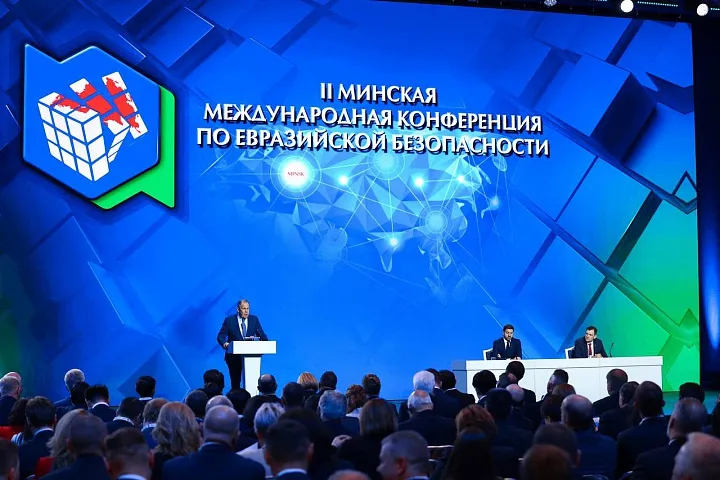Some 600 people, representing 40 countries, gathered Oct. 31-Nov. 1 in Minsk, Belarus for the Second International Conference on Eurasian Security. According to the official BelTA News Agency, the conference attracted high-level dignitaries from Eurasian, Asian and Middle Eastern nations—Russia, Hungary, Syria, China to name a few—as well as representatives of regional bodies and think tanks, for a serious discussion about the security challenges facing Eurasian nations at a time of great global turbulence, and about the steps that must be taken to protect sovereignty and prevent tensions from escalating into war. Many bilateral meetings took place on the sidelines of the conference.
When Politico offered the obnoxious comment that the Minsk conference should be seen as a rival to the annual Munich Security Conference, Russian Foreign Minister Sergey Lavrov countered in response to a media query that they are two “different matters.” “Regarding comparisons with the Munich Security Conference, we do not organize these events to compete with anyone. … we are not opposed to anyone but are focusing on the objectives we perceive in terms of constructive interaction with partners who share our approaches. Therefore, I would not speak of competition. These are different matters. The Munich Conference has, for some time, been a closed structure, inviting only the ‘chosen few,’ those who ‘echo’ Western leaders. In contrast, the Minsk Conference is open to participation from any country.”
Press secretary of the Belarusian Foreign Ministry Anatoly Glaz told BelTA: “The conference participants and Belarus as a hosting country expect that the event will be used as an opportunity to discuss and outline the promising contours of future Eurasian security, future security of our region, and also to consider the initiative put forward by the Republic of Belarus and supported by our strategic partner the Russian Federation to develop a Eurasian Charter of Diversity and Multipolarity in the 21st century.” As Xinhua reported, host President Aleksandr Lukashenko told the opening ceremony “that security crises have swept across the globe and countries are increasingly compelled to use military force to protect their sovereignty and prevent the escalation of tensions. The deterioration of the conflicts in Ukraine and the Mideast will have “irreversible consequences globally.”
In his address to the conference President Lukashenko said further escalation of those conflicts threaten the world with far reaching consequences, reported BelTA. “Further escalation of the conflicts in Ukraine and the Middle East can cause irreparable damage on a global scale.”




